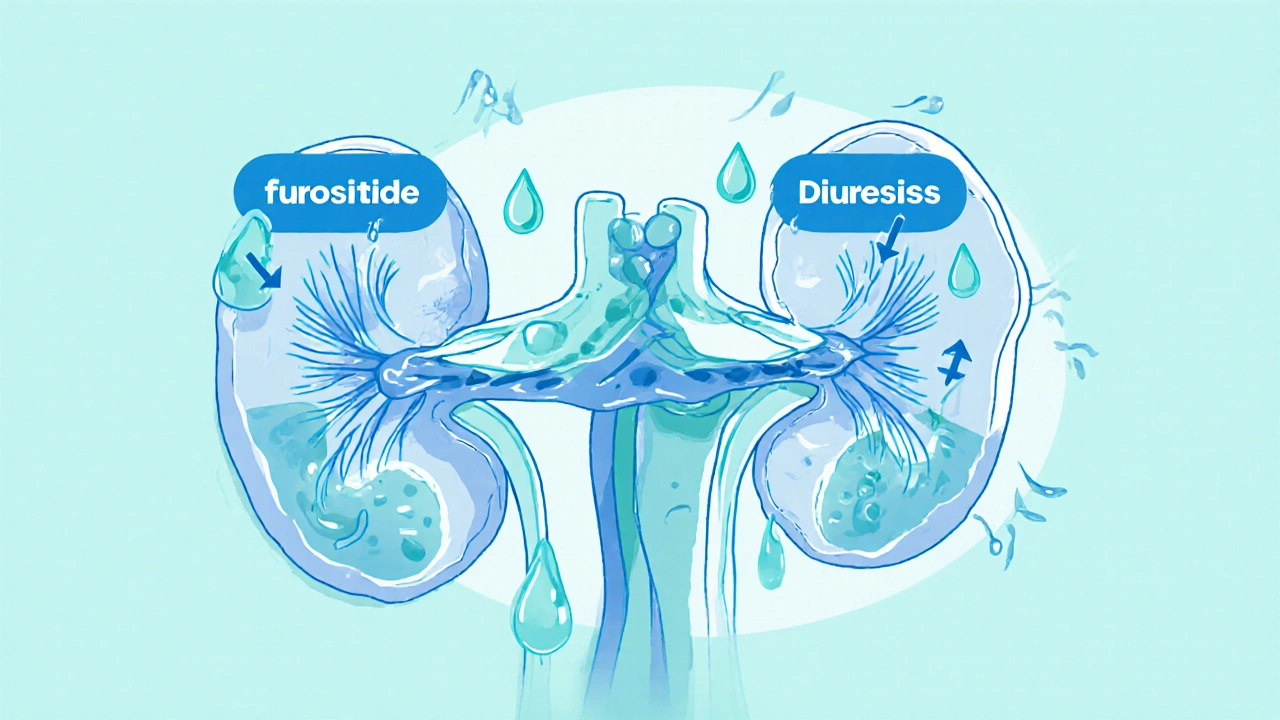Torsemide: How It Works, When It’s Used, and What You Need to Know
When your body holds onto too much fluid—whether from heart failure, kidney problems, or high blood pressure—torsemide, a potent loop diuretic that helps your kidneys remove excess salt and water. It’s one of the most effective diuretics for getting rid of fluid fast, and unlike some others, it works longer and more consistently. You might hear it called a "water pill," but that’s just the start. Torsemide doesn’t just make you pee more—it helps your heart pump better by reducing the pressure in your blood vessels and lowering the volume of fluid your heart has to push around.
It’s often prescribed when other diuretics like furosemide don’t cut it, or when you need a longer-lasting effect. People with chronic heart failure use it daily to stay out of the hospital. Those with kidney disease or severe swelling in their legs or belly (called edema) rely on it to feel less bloated and more comfortable. And because it’s strong, doctors sometimes choose it over cheaper options when precision matters—like when you’re on a strict fluid limit or have trouble with electrolyte balance.
It’s not just about the drug itself. What matters is how it fits into your whole health picture. edema, the visible swelling caused by fluid trapped in tissues is a major reason torsemide gets prescribed. But it also ties into heart failure, a condition where the heart can’t pump blood well enough to meet your body’s needs. And if you’re dealing with hypertension, high blood pressure that strains your heart and arteries, torsemide helps by taking pressure off your system from the inside out.
People often wonder how fast it kicks in. The answer? Usually within an hour, and it lasts longer than most diuretics—up to 4 to 6 hours, sometimes even longer. That’s why some folks take it just once a day. But timing matters. Take it in the morning so you’re not waking up in the middle of the night to use the bathroom. And don’t skip your follow-ups—your doctor will check your potassium, sodium, and kidney function because these can drop too low if you’re not careful.
You’ll find posts here that break down exactly how soon torsemide starts working, what affects its timing, and how to tell if it’s doing its job. Others compare it to other loop diuretics, explain side effects like dizziness or muscle cramps, and even cover what to do if you miss a dose. There’s no fluff—just clear, practical info from real patient experiences and medical guidelines. Whether you’re new to this medication or have been on it for years, you’ll find something that helps you take control.





